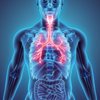-

Large study on milk: Risky for women but not for men
The risk of ischemic heart disease (IHD) and acute myocardial infarction (MI) increased for women with milk intake levels higher than 2 glasses per day, while no such association was found in men, according to a new large Swedish study.
-

Jättestudie om mjölk: Riskfyllt för kvinnor men inte för män
Risken för hjärtinfarkt ökade för kvinnor som i genomsnitt drack minst två glas mjölk om dagen, medan det hos män inte återfanns något sådant samband i en ny stor svensk studie.
-

AZ gets approval for drug targeting rare disease – it may reduce cortisone dependence
AstraZeneca’s drug Fasenra gets an expanded indication in the EU and is now approved as a treatment for the rare autoimmune disease known as Churg-Strauss syndrome.
-

Her company is developing a new tablet form obesity drug
Obesity and diabetes are the primary targets of a new tablet treatment under development by Malmö-based Pila Pharma. The company’s ambition is to take on the billion-selling GLP1 analogues. ‘‘Basically, I expect all the beneficial effects that they have, but not the same side effect profile,’’ company founder Dorte X Gram said in an interview with Life Science Sweden.
-

Studie: Hjärtbox gav färre komplikationer än kylväska vid transplantation
En svenskutvecklad metod för att förvara donerade hjärtan inför transplantation minskar risken för patienten att drabbas av tidig hjärtsvikt, enligt en ny studie från bland annat Göteborgs universitet.
-

Utvecklar metod för att individanpassa transplanterad vävnad
Att transplantera organ innebär flera risker. Göteborgsföretaget Verigraft försöker hitta sätt att minimera riskerna genom att individanpassa vävnader med hjälp av blod.
-

Privat miljongåva tar spetsforskning inom sepsis vidare
Ny forskning vid Lunds universitet ska öka kunskapen om sepsis och möjliggöra tidig identifiering av högriskpatienter. Med en privat donation på 12 miljoner kronor kan nu arbetet tas vidare.
-

Innovative start-up helps doctors, scientists and industry balance coagulation risks
For many doctors caring for seriously ill patients, for example, in stroke units and cancer wards, maintaining the life-saving balance between bleeding and thrombosis is an ongoing challenge. In the late 1980s, scientists at Maastricht University in the Netherlands developed an innovative method, the thrombin generation assay (TGA), which provides a complete overview of a physiological process crucial for maintaining normal haemostasis.
-

Beta-blockers are often given unnecessarily, a study finds – “This will affect future practice”
Patients who have suffered a minor heart attack do not benefit from beta-blockers, according to a major new study that may change guidelines for cardiac care.
-

Erfaren medtechledare tar över klubban i Realheart
Medtechbolaget Realheart, som utvecklar ett artificiellt hjärta, har utsett Magnus Öhman till arbetande styrelseordförande.
-

Prismiljoner till forskning om TBE och bakterieätande virus
TBE-virusets väg till hjärnan och bakteriofager som alternativ till antibiotika hör till de forskningsfält som premieras när sammanlagt 33 miljoner kronor tilldelas fem yngre forskare i Sverige.
-

Blodprov för Alzheimers får tummen upp i studie – ”Skulle kunna innebära en revolution”
Ett enkelt blodprov kan vara lika bra, eller bättre, för att upptäcka Alzheimers sjukdom jämför med de ryggvätsketest som används idag, enligt en ny svensk-amerikansk studie. Nu får Lundaprofessorn Oskar Hansson ett stort anslag för att vidareutveckla blodprovet så att det kan användas i stor skala.
-

Anna Törner: “My quantified life”
“The expression ‘you can’t see the forest for the trees’ feels newly relevant in the context of wearables. One can easily get caught up in the idea that the more we measure, the more we know,” Anna Törner writes in a column.
-

Ingrid Lönnstedt: Demystification of the power of a scientific study
”You surely do realize that even the smallest changes in study assumptions may influence the estimated sample size needed. And how is it even possible to guess the magnitude of the treatment effect before performing the study?” writes Ingrid Lönnstedt in a column.
Få tillgång till allt innehåll på Life Science Sweden
Ingen bindningstid eller kortinformation krävs
Redan prenumerant? Logga in
Gäller endast personlig prenumeration.
Kontakta oss för en företagslösning.